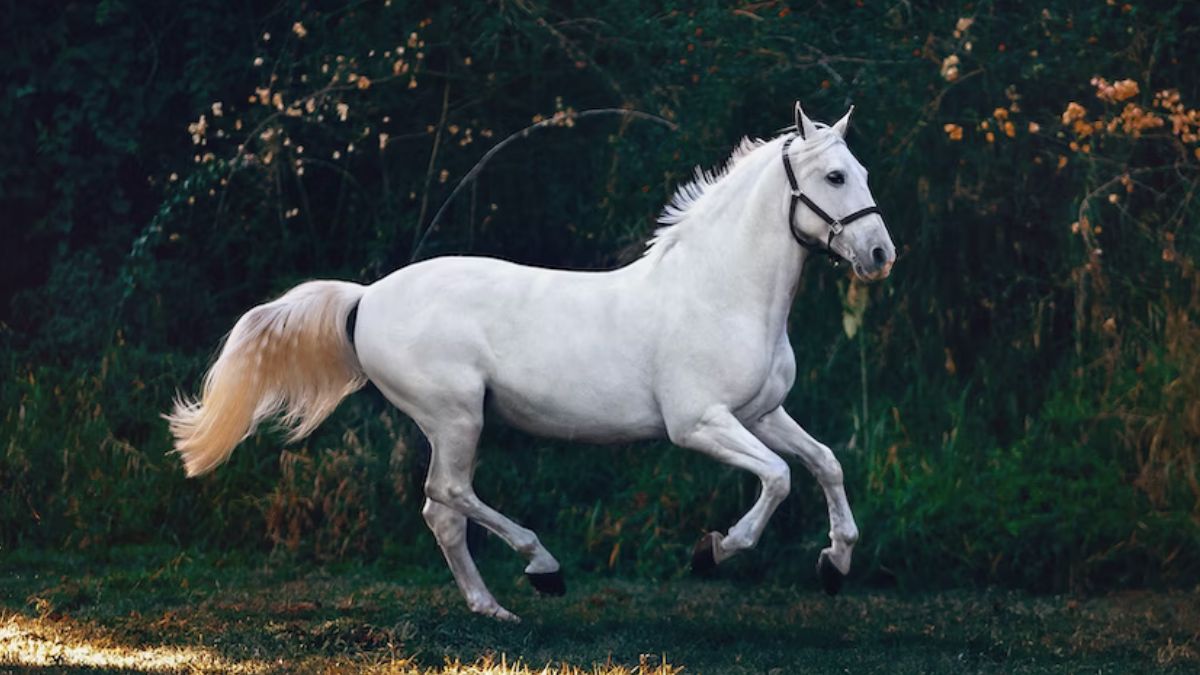The elegance, power, and grace of horses have mesmerized humans for generations. As animal lovers and riders, we are naturally curious about the longevity of these magnificent animals. How much longer do we have with our horse friends? These wonderful animals deserve a high quality of life, How Long Do Horses Live and we will address the variables that affect their lifetime, the average lifespan, the vital elements for healthy aging, common health issues, and more in this post.
Life Expectancy of Horses
Factors Affecting Lifespan
Genetics, breed, general health, diet, activity, and environmental factors all play a role in a horse’s expected lifespan. A horse’s longevity is influenced not just by its genes and breed, but also by how well it is cared for and managed. We can increase their longevity by catering to their individual requirements and creating a comfortable environment for them.
Average Lifespan
Horses typically have a 25-30 year lifespan. It’s worth noting, though, that depending on their environment, some horses can survive well into their 30s and beyond. The average longevity of a horse has gone up in recent years thanks to improvements in equine medicine, horse feed, and general care.
Healthy Aging
Proper Nutrition
Horses, like humans, need a varied and nutritious diet to live long, healthy lives. The nutrients they need for optimal health can be found in a diet that is heavy on high-quality forage and supplemented with suitable concentrates. Having consistent access to clean water is crucial for staying hydrated and keeping the body running smoothly.
Regular Veterinary Care
For optimal health and early disease detection, routine veterinarian care is essential for horses. Diseases can be avoided and good health can be maintained through routine preventative care such as immunizations, dental exams, and deworming. Your veterinarian will be able to give you precise recommendations for your horse’s food, activity routine, and health issues.
Exercise and Mental Stimulation
A horse’s physical and mental health greatly benefit from regular exercise and mental stimulation. Maintaining their physical health and mental well-being through turnout time and activities like riding, groundwork, and natural horsemanship techniques. Training, interactive toys, or just hanging out with other horses are all great ways to keep a horse’s mind active and engaged.
Common Health Issues
Dental Problems
Horses have special dental requirements, and problems with their teeth can have a devastating effect on their quality of life. Flossing (the removal of sharp enamel points) is a common dental treatment that can help keep teeth healthy and free from discomfort, trouble biting, and other issues that can arise from neglecting your teeth.
Joint and Bone Issues
Arthritis and other joint and bone problems are a possibility for older horses. Keeping your joints healthy and free from pain can be accomplished by regular exercise, good footing, and, if necessary, joint supplements. In order to effectively manage these illnesses, it is essential to consult with a veterinarian.
Colic
Horses frequently experience health problems associated with colic, a condition of the digestive tract. Preventing colic is as simple as keeping a regular feeding schedule, giving your pet access to clean water, and doing what you can to reduce stress. Successful treatment of colic requires prompt attention from a veterinarian after the first signs of the condition are noticed.
Quality of Life
Housing and Environment
The health and happiness of a horse depends greatly on its living conditions. Having a place to take cover, enough room to roam, and secure fencing are all necessities. A healthy and injury-free stable or pasture is a win-win for everyone involved.
Social Interaction
Like humans, horses benefit greatly from interaction with other horses. Horses’ mental and emotional health can be improved by regular opportunities for social engagement with other horses. Keep horses in groups or give them regular turnout time with friends who get along with them.
Conclusion
Horse owners and aficionados who don’t know how long their horses live aren’t doing their part. We can make the most of the time we have with these remarkable creatures by thinking about things that affect their lifespan, giving them the care they need, and making sure they have a good one. It is important to keep in mind that it is our duty to provide our horses the love and care they deserve for all the good they do for us.
FAQs
What is the average lifespan of a horse?
The average lifespan of a horse is between 25 and 30 years. However, individual circumstances and care can influence this range, with some horses living into their 30s or beyond.
Can horses live longer with proper care?
Yes, horses can live longer with proper care. Regular veterinary check-ups, balanced nutrition, exercise, and a suitable living environment all contribute to extending their lifespan.
How can I ensure my horse lives a healthy life?
Ensuring a healthy life for your horse involves providing a balanced diet, regular veterinary care, exercise, mental stimulation, and a safe and comfortable living environment. Consult with professionals to tailor care to your horse’s specific needs.
What are some common health issues in horses?
Common health issues in horses include dental problems, joint and bone issues, colic, and respiratory conditions. Regular veterinary care and appropriate management practices can help prevent and address these issues.
What factors affect the lifespan of a horse?
The lifespan of a horse can be influenced by genetics, breed, overall health, diet, exercise, and living conditions. Proper care and management play a crucial role in maximizing their lifespan.











